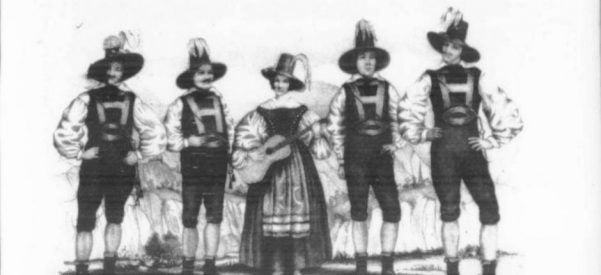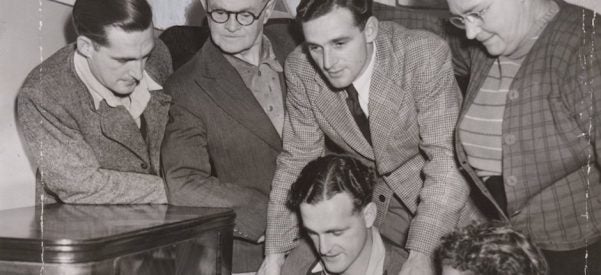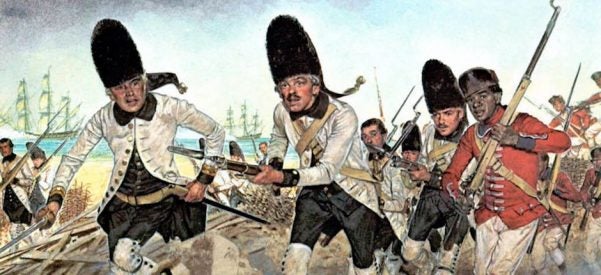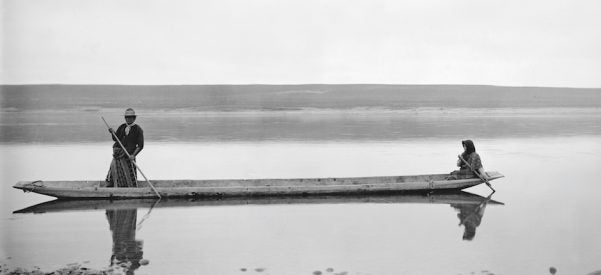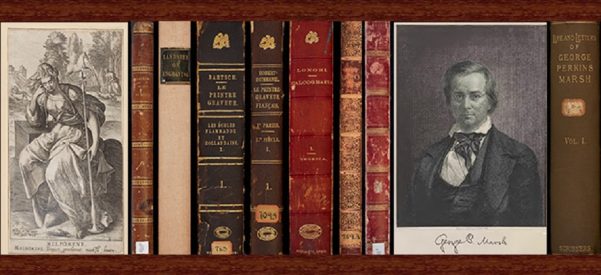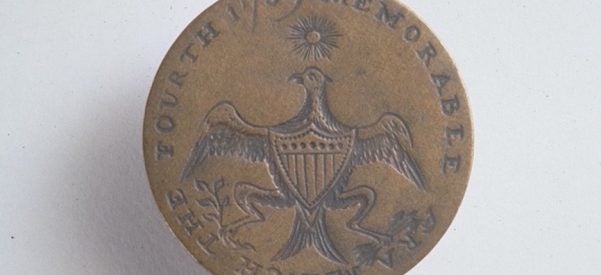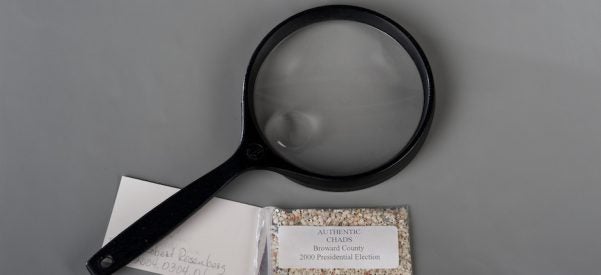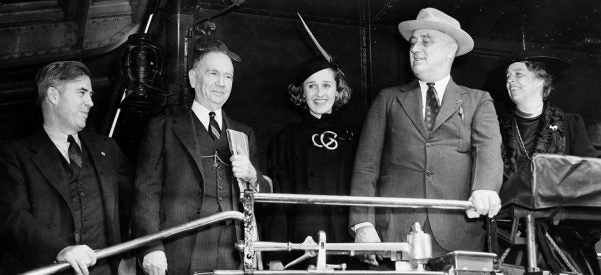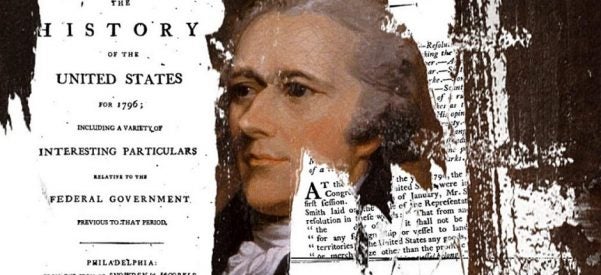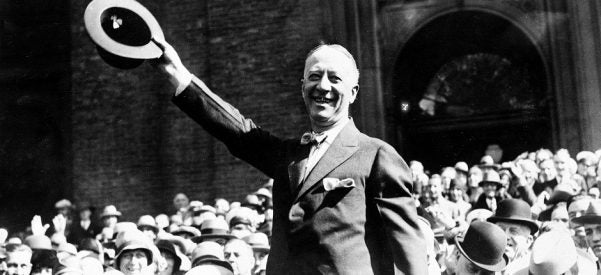Explore
: American History
Vestiges of the Racist Entertainment Persist in Art and Politics
By Daniel H. Foster and Anne Bramley
December 27, 2016
In 1822 the Austrian emperor Franz I and his ally Tsar Alexander I of Russia held a meeting in a remote valley of the war-torn Tyrolese Alps. They were entertained by the Rainers, a locally renowned family of singing farmers. When the visiting dignitaries heard the improvisational simplicity of the family’s performance of native Alpine songs, they encouraged the four Rainer brothers and their sister to leave the war behind and take their homegrown mountain show on the road. …
Read More >
The Radio Connected Us to the World More Deeply Than the Technologies That Followed
By Manuel H. Rodriguez
December 13, 2016
The digital age, we are told, has made media more immediate, more democratic, more visceral than what came before.
I have my doubts. Was there ever anything more visceral than the radio of the early 20th century?
When I was a child in the Los Angeles of the 1930s, our family never missed a broadcast of The Lone Ranger, and the introduction, always accompanied by Rossini’s William Tell Overture, is still fixed in my mind.
“A fiery horse with the speed …
Read More >
While the Marquis de LaFayette Gets a Share of the Glory, Names Like Gardoqui and Gálvez Are All But Forgotten
By Larrie D. Ferreiro
November 29, 2016
Americans like to think of our nation as exceptional in nature, a dramatic break from all that came before it. Being exceptional, it’s inconvenient to acknowledge that two European powers provided invaluable assistance in our struggle for independence from Britain. So we usually don’t. The American origin story thus has scrappy colonists fighting the British alone, with little outside help except for France’s Lafayette, and a cameo by General Rochambeau at the very end. But Americans could have never won …
Read More >
From Postwar 'Canoedling' to Unplugging from Our Smart Phones, the Timeless Boat Takes Us Back to Simpler Days
By Mark Neuzil
November 21, 2016
A canoe is like a banjo—it makes everyone happy. Propelled with paddles, sleek, long, narrow, lightweight—mostly open—and fast: Every canoe I’ve owned makes me smile at its memory. I remember my oldest daughter, at age 10, mimicking the cry of a loon, and the loon crying back, while on a Boundary Waters trip. Or that one big fish that one time in that one hole whose location I’m never going to disclose because then it won’t be my memory alone. …
Read More >
A Fortuitous Influx of Cash Launched the Smithsonian’s Earliest Art Collection
By Helena E. Wright
November 16, 2016
In 1835, through an unlikely turn of events, the young United States became the beneficiary of the estate of one James Smithson, a British scientist of considerable means who had never set foot on American soil. The gift of $500,000 (about $12 million today) carried the stipulation that it be used to create an institution for the “increase and diffusion of knowledge.”
How amazing—and baffling—this windfall must have seemed! The responsibility was tremendous, in terms of the amount, the perception, …
Read More >
For Many Voters, Wearing Political Paraphernalia Is Their Personal Connection to a Candidate
By Harry Rubenstein
November 7, 2016
On April 30, 1789, enthusiastic onlookers filled the streets, dangled out of windows, and perched on rooftops to catch a glimpse of George Washington as he made his way through the streets of New York to Federal Hall to assume the new office of President of the United States.
As at many political events that would follow, there were vendors along the procession route busily making and selling souvenirs to commemorate the day. Among the items sold were small brass …
Read More >
From a Coloring Book to a Painted Axe, Election Ephemera Remind Us of Hard-Fought Elections of Yore
By Megan Smith
October 10, 2016
America’s founding is rooted in the power of the people to select their own leader. Efforts to sway the vote—via gritty campaigns driven by emotion, piles of cash, and brutal, drag-out battles—are equally American.
Years, decades and even centuries later, the essence of these fights can often be glimpsed through their ephemera—the signs, slogans, and campaign buttons that both bolster true believers and aim to coax the reluctant into the fold. These objects can suggest campaign strategy as well as the …
Read More >
The Fight Over the New Deal and Roosevelt's Second Term Launched a New Style of American Political Attack
By David Sehat
October 10, 2016
True or False? Franklin Delano Roosevelt claimed to be a conservative defender of the nation’s founding ideals.
If you answered “both,” you’d be correct. We don’t tend to think of FDR as a conservative today, and at certain points he would have rejected the label, but in 1936 that was how he wanted to be understood. He was three years into his first term and it was far from clear there would be a second. The mandate from his 1932 …
Read More >
A Scheming and Salacious Newspaper Reporter Targeted Hamilton and Jefferson—and Nearly Ruined Them
By Christopher B. Daly
October 10, 2016
It is a common complaint that the drive for traffic at news sites in the digital age has debased our political dialogue, turning a responsible press into a media scramble for salacious sound bites. But partisanship and scandal-mongering go way back in the American political tradition. And there was no internet to blame in 1793, the year an especially vicious and salacious newsman arrived on American shores and soon after set his sights on the founding fathers.
Despite efforts to unify …
Read More >
The Public Was Charmed by His Presentation as an Antidote to Politics, Until the Great Depression Hit
By Charles Rappleye
October 10, 2016
It was not the craziest election of the 20th Century, but it might have been the strangest.
One candidate was a natural politician, affable and gregarious, a true man-of-the-people who favored flashy suits and a trademark derby hat. Reporters loved him and admirers thronged his events.
The other contender could easily be classified a misanthrope. He was a miserable public speaker who hated crowds and disdained the campaign regimen of shaking hands and kissing babies. For months, even after secretly directing his …
Read More >


